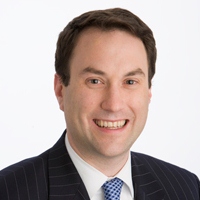 After years of waiting, the SECURE Act is law. Open multiple employer plans, generally referred to as pooled employer plans (PEPs) under the SECURE Act, can go live in 2021. So what does a plan advisor do now?
After years of waiting, the SECURE Act is law. Open multiple employer plans, generally referred to as pooled employer plans (PEPs) under the SECURE Act, can go live in 2021. So what does a plan advisor do now?
A key first consideration that will drive many other areas—especially relationships with current and future clients—is if or how an advisor might change their business to take PEPs into account. This consideration has been the focus of many of my discussions with individual advisors and consultants as well as national aggregators since the SECURE Act was signed into law.
The following questions are a common starting point of most PEP discussions.
Do You Want To Be a Pooled Plan Provider?
There are many viewpoints on whether PEPs will take over the world, be a big “nothing,” or be something in the middle. If you decide you want to participate in the world of PEPs, a starting question is whether you want to be a pooled plan provider (PPP)—in other words, a sponsor of your own PEP. If you do, you have to think about who you work with, how you handle key responsibilities like administrative fiduciary duties that have been typically reserved, even in some 3(16) models, to sponsors, and what your business and structural model will be, because there are literally dozens of way to structure a PEP business. If you are part of a larger organization like an aggregator, even more internal discussion is likely to be needed to figure out your organizational position. No matter what, there are complex legal questions that come up in many PEP structures, so stepping carefully from the start is essential.
Do You Want To Be a Provider to a PEP?
Even if you don’t want to be a PPP, you can still have a role in a PEP as a service provider to the PEP. If you do want to be a provider, what role do you take—administrative duties, “collection trustee” (to make sure contributions are properly made) duties, investment management duties, or other services? One key question is how you get selected and find your way into a role.
What Is Your Role for Clients in PEPs?
Many advisors have built their practices on helping their clients design, find, review and replace providers for their plans. With many of the duties in a PEP left in the hands of the PPP or a PEP provider, will you be an evaluator of PEPs? How will approach advising clients whether or not to join PEPs? How will you balance your responsibilities if you are a PPP or a provider to a PEP that your client is considering. ERISA’s complex rules on conflicts can easily come into as you evaluate how you move forward.
Click here to browse past columns by David Levine.
How Will You Engage with New Clients?
Once you have started to figure out if and how you will play a role in the world of PEPs, your focus may quickly turn to how you approach the PEP versus single employer recommendation process and what it will mean for your business. Will you focus on directing some or all of your potential new clients to your own PEP, to a PEP you provide services to, or to PEPs with which you have no ongoing operational role? Again, ERISA’s requirements must be taken into consideration here.
How Will You Engage with Existing Clients?
How do you decide which of your current clients might be a good candidate for a PEP? What process do you use to evaluate whether a PEP is good for existing clients—especially if you are involved in a PEP you discuss with your client?
What Are the Risks to my Existing Business?
This last question is often a big focus of PEP discussions after working through the other core questions in this column. There are many roads—from both a business and legal perspective— that it can lead you down.
These basic questions are just the start. As noted already, there are significant client relationship, economic, and legal considerations to take into account as an advisor approaches the new world of PEPs. There are many opportunities, but stepping carefully and with consideration will be essential as the retirement industry evolves in response to the SECURE Act.
David N. Levine is a principal with Groom Law Group, Chartered, in Washington, DC. This column appears in the latest issue of NAPA Net the Magazine.

